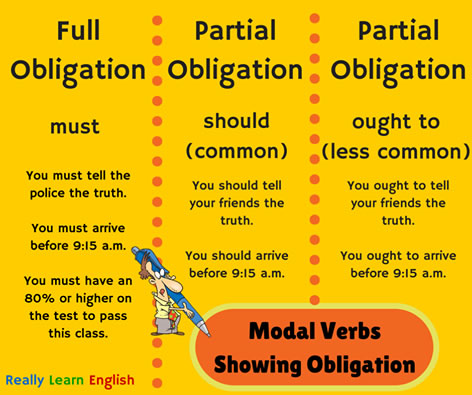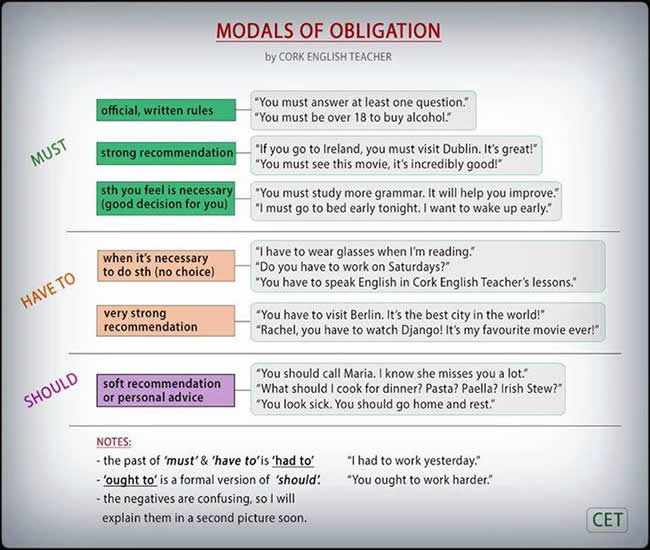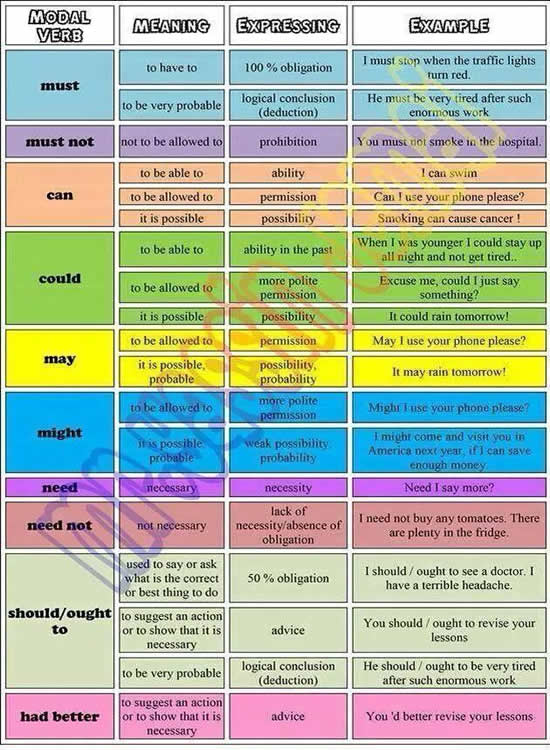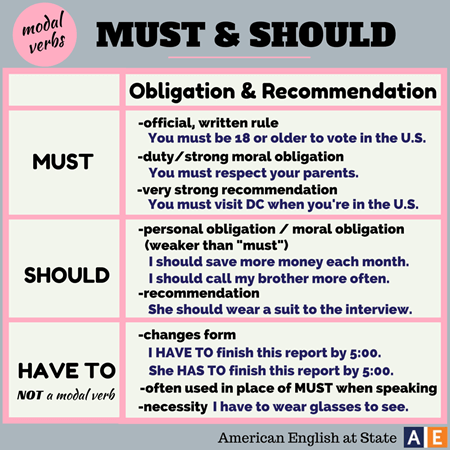Tag: must
Using Should and Must in English We use should to suggest something “it is advisable to …”. We use must express a stronger point of view “We need to… …
Had to – Obligation In The Past When we use an obligation in the present we can use either ‘must’ or ‘has to’. In the past, this is different. …
Modal Verbs Showing Obligation Full obligation; must, partial obligation; should, partial obligation; ought to (less common);
Ten Very Important Things For Students That Learn English Ten things students need to know to really know a word; The meaning, the form, the pronunciation, the spelling, the …
Uses of Must and Differences Between Must and Have to Uses of Must; obligation, deduction, emphasize necessity, strong recommendation, musn’t=prohibition. For example sentences follow the list;
English Modals, Examples and Uses (Very Important) Uses of can, be able to, can’t, could, may, might, must, have to, need to, needn’t, musn’t, don’t have to, should, ought …
Must / Cant / Should / Needn’t / Might / May / Could Have; Expressing modals must have / cant’ have / should have / needn’t have / might …
Modals of Obligation; Must; official, written rules, strong recommendation Have to; when it’s necessary to do sth(no choice), very strong recommendation Should; soft recommendation or personal advice
Modal Verbs – Meaning – Expressing – Examples; must, must not, can, could, may, might, need, need not, should / ought to, had better;
Modal Verbs – Must, Should and Have to; Obligation and Recommendation;










